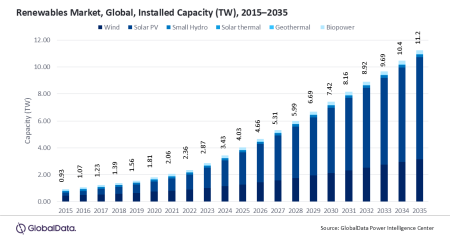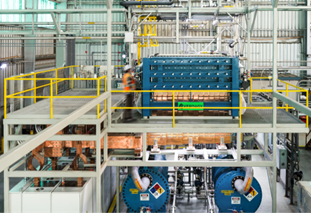08 October 2015, Lagos – Mr. Kola Balogun is the Chairman, Momas Electricity Meters Manufacturing Company Limited. In this interview with STANLEY OPARA, he speaks about the challenges confronting local manufacturing of electricity meters and its impact on the power sector, among other issues
 The country still imports electricity meters bypassing local manufacturers. What do you think could be stopping foreign firms from building their factories in Nigeria?
The country still imports electricity meters bypassing local manufacturers. What do you think could be stopping foreign firms from building their factories in Nigeria?
It is very worrisome that Nigeria is still importing complete electricity meters at this level of our development. Some foreign makers I have discussed with give the impression that they are not willing to let their technology go. Technology is all about policy and regulation. The question for us is that: do we want to grow or do we want to stay where we are. No nation is ready to let go their technology. So, it is like a tug of war for them to allow you to gain manufacturing skills.
As a person, I always put it to them that Nigeria has a massive population, which is a very good market. It is equally very reasonable for them to transfer their production facility down to Nigeria if they must continue to enjoy government’s support and the patronage of the Nigerian people. Some are feeling very reluctant because of issues bordering on policies and others. I keep trying to convince them but yet they don’t seem to buy the idea of setting up factories here. This was what informed our move to build a factory in Nigeria. Nigeria needs to do something speedily because the country currently has huge demand for electricity meters. We should not allow foreign companies to close this demand gap to the detriment of Nigerian businesses and the economy at large.
Nigeria now has a new government. In your assessment, do you think things would be done differently?
Of course, I am very optimistic. On Wednesday, 13th August 2015, history was made and a milestone in the Nigerian power sector occurred with the presentation of samples of locally manufactured meters to His Excellency, President Muhammadu Buhari by the Permanent Secretary, Federal Ministry of Power, Ambassador GodknowsIghali.
Technocrats in the power sector reckon that with these developments of locally made meters, there would be a significant growth in the Nigerian economy and also a reduction in the level of unemployment.
The question that currently lingers in the minds of industry players is: Now that the made-in-Nigeria meters have been presented to Mr. President, what is next? How would this presentation of the meters translate into patronage of the local meter manufacturers as contained in the Local Content Act?
So, what do you think are the roles of the different stakeholders in the system to drive this initiative?
The different players in the entire value chain of the power sector have a role to play to make this very critical sector of the economy work for the good of all, for instance the Central Bank of Nigeria has a big role to play in the interest of the economy by helping to ensure all the electricity distribution companies patronise the local meter manufacturers.
The CBN could contribute by limiting foreign exchange allocation to electricity distribution companies to import these prepaid electricity meters which our indigenous meter manufacturers are able to produce with a far better hybrid quality when compared to some of the imported ones usually dumped in the Nigerian market.
Meanwhile, the regulatory bodies also owe the nation the crucial duty to ensure that made-in-Nigeria meters meet international standard by ensuring periodic random sample testing of meters produced by indigenous manufacturers through its agency, Electricity Management Service. This role of EMS is so important and must be diligently carried out to put the indigenous manufacturers on their toes not to compromise the quality of locally made meters. All these are to be coordinated by the Nigerian Electricity Regulatory Commission.
Another concern staring us in the face is how to ensure that more of this bold step like the presentation of local meters to President Muhammadu Buhari undertaken by the Federal Ministry of Power are encouraged in the power sector, as such moves will not only add worth to the sector’s value chain, but will also help in tackling one of the new administration’s core economic agenda, which is employment.
With the current structure on the ground, do you see the local content agenda getting entrenched in Nigeria, especially in the area of prepaid meter deployment?
The privatisation of the sector has actually fine-tuned processes in the power value chain. However, there is still a strong need for all stakeholders concerned especially the supervising Ministry of Power to take a second look at the functions of the power distribution companies because it appears that the companies have been saddled with the responsibility of purchasing meters and also distribution of bills (including estimated bills) to power consumers whereas their primary function is to ensure that power gets to the transformer.
Perhaps, this is why they have not taken time to notice and provide solutions to the issue of bad working conditions of electricity transformers in the country, which is indeed a major factor affecting energy delivery to the end consumers. This is because the power transmission companies have enough electricity to supply to the consumers through the discos but most transformers currently in place cannot withstand the amount of power or energy that is generated and required by the consumers.
Maybe, they may have to take a second look at the entire privatisation of the power sector in its entirety and limit the role of the discos to end at the distribution of transformer point and now allow for the emergence of electricity marketing companies.
By so doing, the discos that are hitherto seen overwhelmed by the combination of both the responsibilities of distribution and marketing, would now be more focused and single-minded in their objective so that energy could be delivered to consumers by supplying power from the transmission company to the transformer point, from which the marketing company would take it and distribute to the consumers.
As a matter of fact, the proposed electricity marketing companies would be expected to be autonomous, and would be separate business entities not to be owned either in part or full by the discos.
It must be noted that combining the role of marketing and distribution for discos as we currently have it is an anomaly that is limiting the benefits or the expected benefits of the privatisation of the power sector.
If the proposition of the creation of electricity marketing companies is implemented, it would result in efficient distribution of power to the distribution point by the discos. The marketing company on their own would ensure consumers are properly metered, appropriately billed and the power sector would move forward.
With this model in place, what other value would be brought to the table by the marketing companies?
One can only hope that indigenous meter manufacturers would make this patronage count, especially in the area of job creation and employment opportunities for the Nigerian youth. The manufacturers must be ready to show in tangible and clear terms how this move has increased the employment rate in the country.
It is also important to note that these local manufacturers would increase capacity through expansion drive targeted at meeting local demand for smart meters. This is very crucial because it would be counterproductive to stop the importation of meters if the indigenous meter manufacturers cannot meet local needs.
With a huge market for prepaid meters in the country, do you see any need for local manufacturers to boost their productive capacity?
Of course, another critical question to ask if truly we desire an efficient and effective power sector is: how are we trying to institutionalise manufacturing of meters in Nigeria so that the production is not limited to the few existing manufacturers. More investors should be encouraged to venture into electricity meter manufacturing to promote healthy competition, which will be in the general interest of the country in terms of quality and product pricing.
Finally, it is pertinent to also look into the opportunity of creating another value chain within the power sector to encourage indigenous manufacturers to start manufacturing of transformers in Nigeria so that very soon we can also present made-in-Nigeria transformers to Mr. President, while also maximizing the full potential of the power sector reform.
- Punch



